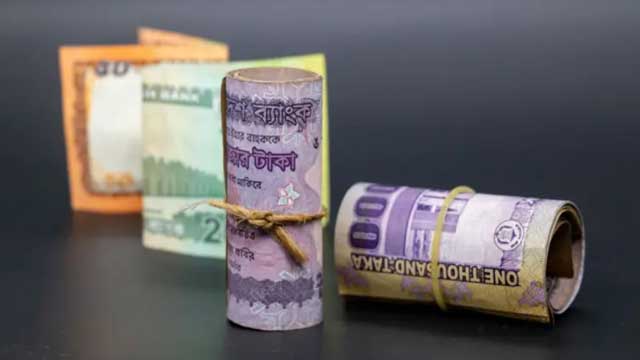The country’s growth in gross domestic product during the second quarter of the current financial year grew at a slower pace than in the past two quarters since March 2023.
The country’s GDP growth was 6.01 per cent in the first quarter of FY24, and 6.92 per cent in the last quarter of FY23.
Economists said that sluggish activities in the industry and service sectors were the main reasons for the slump in overall economic activity amid the persistent dollar shortage as well as high inflation.
GDP growth for the period of October-December in FY24 has been recorded at 3.78 per cent by the Bangladesh Bureau of Statistics as part of its exercise to calculate growth quarterly under the $4.7 billion loan programme with the International Monetary Fund.
The growth in the second quarter of FY24 dropped from 7.08 per cent in the same period of FY23.
It is also the lowest since the third quarter of FY23 when BBS calculated GDP growth at 2.3 per cent.
The BBS update also showed that the agricultural sector grew by 4.65 per cent in the second quarter of FY24, compared to 4.22 per cent in the same period of FY23.
But the industry sector growth recorded 3.24 per cent in the second quarter of FY24 compared to 10 per cent in the same period of FY23, while the service sector grew by 3.06 per cent in the second quarter of FY24 compared to 6.62 per cent in the same period of FY23.
Former World Bank Dhaka office chief economist Zahid Hussain identified the dollar shortage, high inflation, and misallocation of credit as the reasons for the slowdown in growth.
The country’s imports dropped by 18.19 per cent to $33.68 billion in the first half of FY24 compared to the same period of FY23 because of restrictions on imports amid a shortage of dollars.
The capital goods imports declined by 21.6 per cent over the same period of FY23, and the consumer goods imports dropped by 17.3 per cent in the first seven months of FY24 over the same period of FY23, according to Bangladesh Bank.
The average inflation rate of over 9 per cent for the past 21 months had negative impacts on demand, said Zahid Hussain.
Besides, the misallocation of private sector credit amid BB’s contractionary monetary policy reduced the scope for good entrepreneurs to get bank loans, he added.
The slump in overall economic activities in the second quarter was revealed by BBS when the Asian Development Bank in an update on Thursday projected 6.1 per cent growth in FY 24.
The World Bank projected 5.6 per cent growth and the International Monetary Fund 6.0 per cent in FY24.
The government’s initial projection of 7.5 per cent has already been revised down to 6.7 per cent, according to finance ministry officials.
Economists, however, doubted about achieving the revised target against the backdrop of a slump in economic activities exposed by the BBS update on quarterly GDP released on Tuesday.
They also said that there were no major improvements in overall economic activities in the past quarter between January and March.
Instability in the major economic indicators has been persisting, said Policy Research Institute executive director Ahsan H Mansur.
Stabilisation in the forex reserves and curbing inflation are essential to make the economy stable, he said.
Earlier, BBS said the actual growth in gross domestic product in 2022–23 decreased to 5.78 per cent from the provisional estimate of 6.03 per cent.





